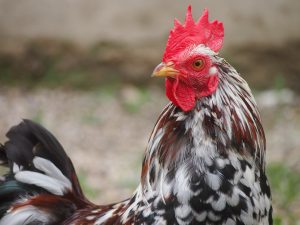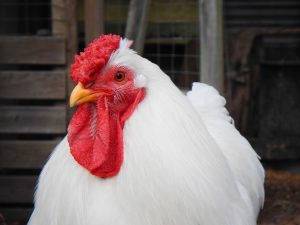I am a fan of buying items in bulk that will be used in quantity and on a regular basis. This bulk buying often offers a discount on the price of buying in smaller quantities and has the added advantage of saving time (at least for a non-shopaholic like myself this would be an advantage). These advantages however, can be a little harder to achieve with perishable goods such as chicken feed. Storing mouldy or insect infested food does not carry the benefits that I would like achieve and can quickly reverse the effects of the desired benefits. Cleaning out spoilt food from containers while swatting away flies and other pests is not a fun way to spend your Saturday afternoon.

Thankfully these unwanted issues can be easily mitigated through fairly simple means. Adequately storing feed can be achieved by simply purchasing a metal bin or container and keeping the lid securely on the container to protect the feed enclosed inside (a simple solution of a brick on top!). The feed can be left in the packaging or bags in order to provide extra protection and the bin should be stored in a dry environment to prevent the feed from spoiling due to moisture in the air.
The choice of a metal bin or container also provides protection against rodents, as plastic and cardboard alternatives can be easily chewed through, and wooden containers can become heavy. Ridding your storage area from rodents that have discovered a vast cylinder of freshly stored food can be an exercise in tail chasing and can make a hefty dent in any savings that you may have amassed from the bulk buying exercise. (or use a secure corner of a utility room).

My preference is for a metal container that is airtight and seal-able. Keeping the container airtight helps to prevent spoiling from moisture, while the seal-ability of the container can prevent other animals from discovering how to remove the container lid and feasting to their hearts content.
Researching into the appropriate levels of chicken feed storage suggested that the optimum quantity should be around one month’s worth of chicken feed. This prevented the requirement for regular shopping trips while minimising the risks of feed spoiling.

It is popular for recycled containers to be used for storing chicken feed, but the choice of recycled container should be evaluated to ensure that the container has not previously held any pesticides or toxic substances. When storing the feed care should also be taken to avoid storing the feed near to pesticides or other chemicals as the feed could absorb the toxins.

